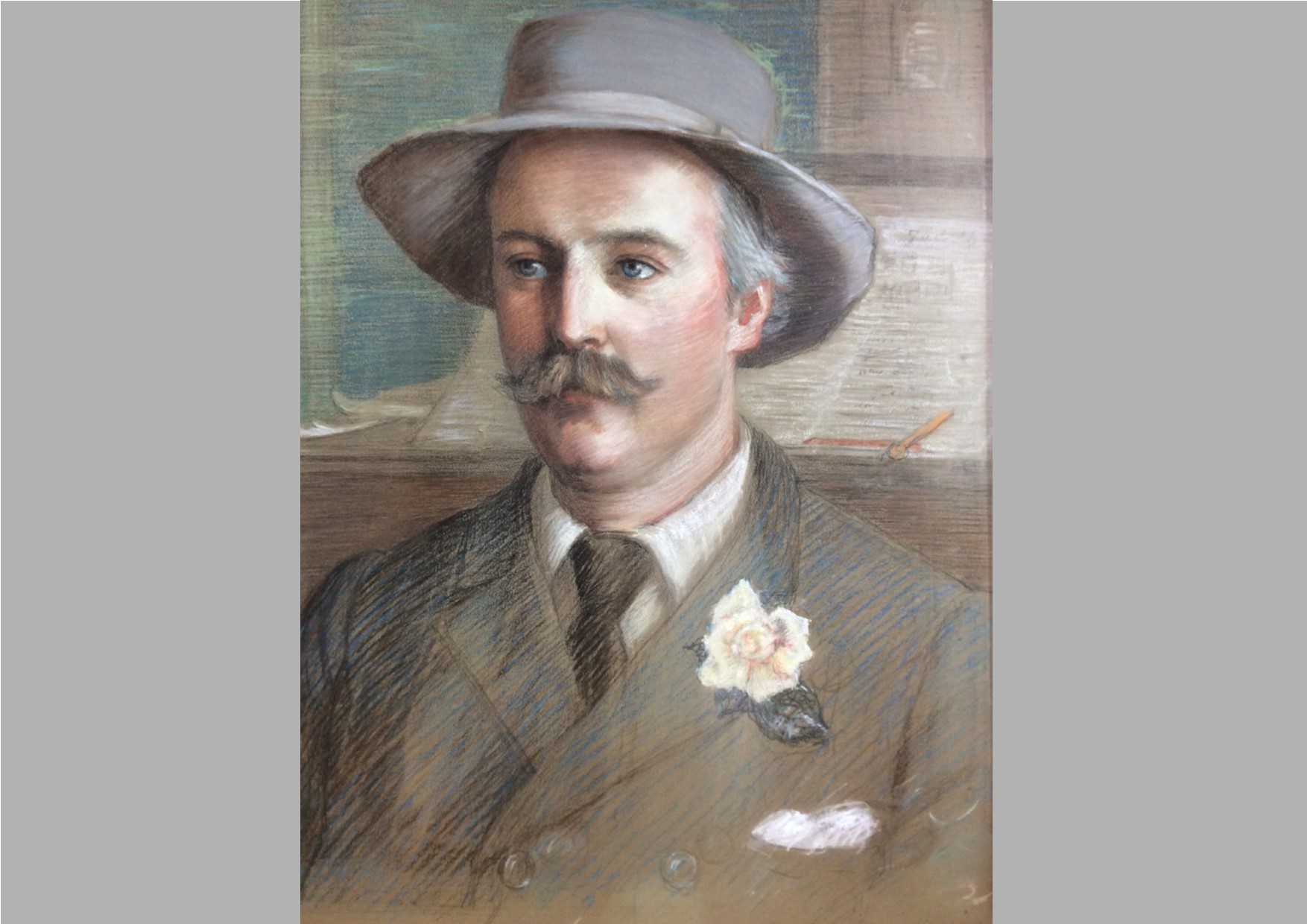
This striking and unusual portrait of the composer Hubert Parry (1848-1918) is by the artist Harold Rathbone (1858-1929). Executed in coloured chalks, it portrays the composer in a fresh and unpretentious way.
Harold Rathbone was a pupil of Ford Madox Brown, an important figure in the Arts & Crafts movement. In 1894 Rathbone co-founded the Della Robbia Pottery, a ceramics factory in Birkenhead that produced relief panels for architectural use, alongside ornamental vessels and plates. The pottery was intended as a true Arts & Crafts venture, following principles advocated by William Morris. This included using local labour and raw materials such as local red clay. Della Robbia wares were sold by Liberty & Co. as well as in their own retail outlet in Liverpool. However the costs of making Della Robbia products was greater than the prices that could be charged; the pottery could not make a commercial success of itself and it closed in 1906.
Rathbone’s portrait of Parry was drawn the same year that the sitter was knighted by Queen Victoria. Parry is shown not formally in academic robes, but stylishly in a suit, brimmed felt hat, and sporting a rose in his buttonhole. He is seated in front of his piano, with an open score spread out behind him. The portrait is inscribed, ‘Hubert Parry, with fond wishes from Harold Rathbone, 1898’, indicating that it was not a commission, but a gift from the artist.
The drawing seems to have returned to the artist after Parry’s death, as in 1925 it was given to the College jointly by Rathbone and Millicent Garrett Fawcett.
Parry was a strong supporter of women’s education and the suffrage movement, while Millicent and her husband Henry Fawcett were music lovers, and these shared interests cemented a friendship between them. After Millicent heard Parry’s Jerusalem performed in the Albert Hall in 1918, she asked the composer if it could be used thereafter as the Suffrage anthem.
The portrait underwent conservation in 2018, fittingly in the centenary year both of Parry’s death, and the granting of the vote to selected women.


